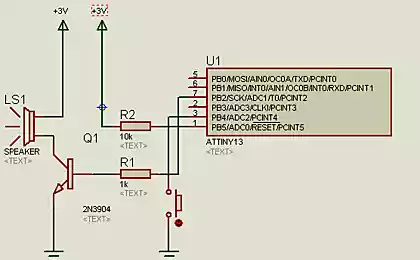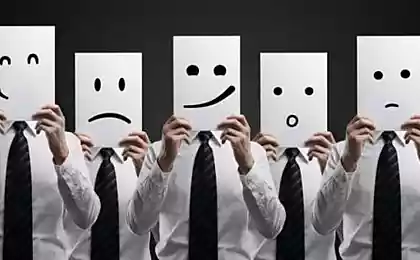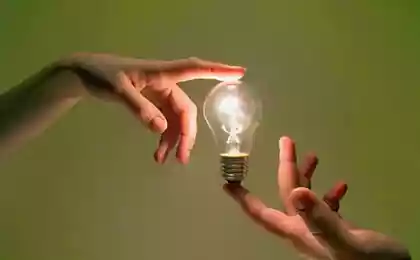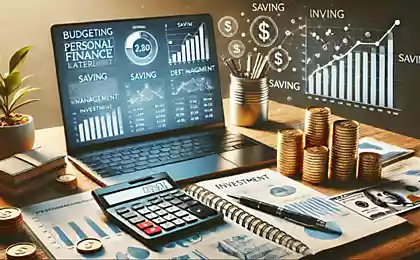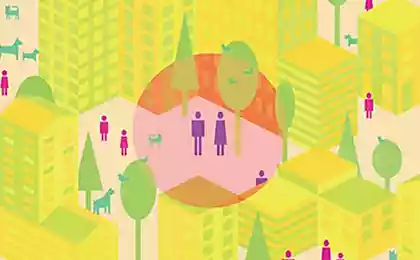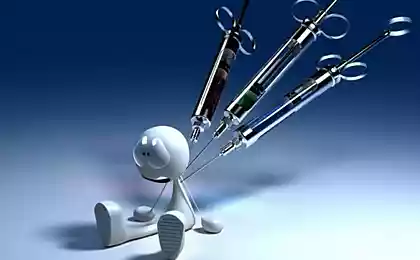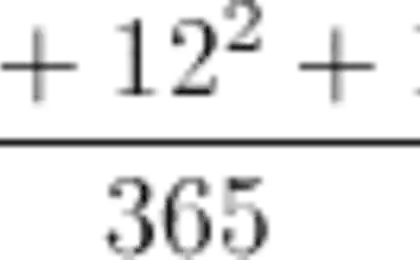902
100 Ways to Manage Time, Attention and Energy

Note by the translator: The translation of the first article from the blog A Year of Productivity was well received by the habra community, and I was asked to translate a few more articles from this blog. The article below is the largest and closest to the practice, its translation took me several months. Like the last time, I recommend reading in comfortable portions, writing down (or copying somewhere) tips that you want to try to apply in practice.

"Hacky time"
Towards the end of a year of studying productivity, I realized that every article I wrote could fall into one of three categories: how best to manage time, energy, or attention.
Time management is a good source of your productivity, but all three ingredients are absolutely essential if you want to be more productive on a daily basis. That is why in the article you will find a set of techniques from all three areas.
To begin with, here are some of my favorite tricks on how:
- get more time;
- wasting time on the right things.
How do you get more time?
1. Plan less time for more important tasks. It seems counterintuitive, but in fact it is not. When you limit the amount of time you can spend on a task, you force yourself to expend more energy on the task for a shorter period of time, allowing you to achieve results faster.
2. Stop watching TV. The average person spends 13.6 years in their lifetime watching TV – you can spend that time on more meaningful tasks.

>>3. Keep a time diary. If you track how you spend your time, you can see how much time is wasted. This will help you deal with time wasted and understand how you can spend time more efficiently.
4. Say no to commitments that destroy your resources of time, energy, and attention. The best way to have more time is to not start doing unproductive things. Resist taking on the unproductive g**o.
5. Remember that the best is the enemy of the good. Your home will never be 100% cleaned – something will always be out of place. Know where to stay, especially for less useful tasks.
6. Set up a "business day." Group all your household chores (washing, shopping, cleaning, watering flowers, etc.) together on one of the days of the week – then you will have more time for important tasks on the other days.
7. Do not work more than 35 hours a week. Research shows that for greater productivity and creativity, you should not work more than 35 hours a week. Recycling can lead to greater productivity, but only in the very short term.
8. Don't write an email.'You are longer than five sentences and mention it in the caption. Using this hack, I go through my inboxes like crazy, and most people absolutely don’t mind when you write short and to the point.
9. Train your incomings with help “The email game”. If you're using Gmail. “The email game” is a completely free web application that is built into your Gmail account and gamifies the process of responding to emails.
10. Register in unroll.me. If you are using Gmail, Yahoo Or Outlook.com. Unroll.me collects all your regular subscriptions into one handy, daily email. I highly recommend this service.Note by the translator:I tried, and in five minutes I unsubscribed from 80 mailings. Cool!
11. Stop sorting your letters by folder. It is proved that finding emails in your email client is much faster than searching through ordered folders.
12. Learn blind printing. The average speed of printing is about 40 words per minute; blind printing can increase it to 60-80 words per minute, which is an increase of 50-100%. You will quickly notice the time saved. ?Note by the translator:I fully support and recommend the online or offline version of Keyboard Solo, both online and offline.
13. Keep track of what you spend time on your computer. using the free RescueTime application (for Mac, PC or Android). You may be surprised to know how much time you are wasting.
14. Save a larger portion of your income. This will save you several decades of working life if you decide to work less and retire early in more rewarding activities.
How to spend time on more useful things?
15. Identify the most important tasks for yourself. Make a list of all the tasks you are responsible for at work, then ask yourself, “If I could only do three of them all day long, which would I choose?” In these three tasks, you should invest 80-90% of your time.
16. Reduce the amount of time you spend on something until you feel like you’re doing it without strain. This is a great way to bring new habits into your life. “Can I meditate for 15 minutes?” No, it's too complicated, I won't do it. Okay, how about ten? It's still too long. Maybe five? Yeah, I can do it without stress. I can sit for five minutes.” Boom.
?Note by the translator: The author refers to the things that you need to force yourself to do to form good habits. The idea is that you don’t have to force yourself to do a lot at once – more than regularity.
17. Work on important but not urgent tasks. Do at least one important, non-urgent task every day, so you can make sure you’re moving forward, not just putting out fires every day.
18. Work on the tomato method. The tomato method is a time management technique in which you work on one task for exactly 25 minutes, after which you take a five-minute break. It's extremely effective.
19. Make a to-do list for procrastination. Make a list of useful things to do when you procrastinate. This will allow you to stay productive even when your brain rejects things that need to be done. ?Note by the translator: The author proposes to separate “constructive” and “destructive” procrastination. As “constructive” he cites such examples as disassembling a table or attending an aerobics lesson, as “destructive” – toys on mobile phones and looking at photos of girls on Facebook. For those interested in the topic, he offers a website “Structured Procrastination”.
20. Live by the two-minute rule. The two-minute rule (from David Allen’s book How to Get Things Right) says that if a task takes less than two minutes, instead of putting it on your to-do list, you should just do it.
21. Plan your free time. It may sound like something you don’t want to do, but it’s been proven that bringing structure to your leisure time makes you happier and more motivated.
22. Choose the following taskFocusing on four things: the context in which you are (work, home, cottage, etc.), the amount of free time, energy level and what important tasks are facing you now.
23. Spend your time consciously. Keep an eye on how you spend your time (and energy and attention) throughout the day. I usually do this by setting an alarm on my phone once an hour.
24. Plan your time by completely disconnecting from work. When you are completely disconnected from work, your brain continues to work on work tasks, but in the background – and you can do other things.
25. Spend more time on planning. Each minute of planning spends five minutes on execution. If you only do without looking back to work with the plan, it will be difficult for you to work smarter.
26. Understand what people mean when they say, “I don’t have time for this.” If someone says that he does not have time for something, then in fact they say that the task for them is not very important.
27. Wait a bit before sending emails or text messages. Give your brain time to complete and formalize your thoughts. Then you will make what you write more complete, meaningful and creative. The world will not fall apart, and you will be able to communicate your message more strongly.
"Hacky energy"
Energy is the fuel you burn during the day to do something. There are a large number of factors that affect the amount of your daily energy, but any factor that affects energy either affects your body or your brain.
Here are some tactics to get more physical and mental energy.
Bodily hacks
28. Exercise. In my opinion, exercise is the best way to get more energy. In addition, they only give you energy – they help fight diseases, improve mood and help you sleep better.
29. Eat right. How you eat has a big impact on your energy level. The worse you eat, the faster you burn out, and the less energy you have left to work.
30. Stop drinking coffee out of habit. Caffeine begins to lose its effect when you drink it out of habit, but it is extremely effective when you drink it strategically (for example, when you need a powerful boost of energy or attention to focus).
31. Use caffeine wisely. Drink coffee longer; drink coffee with water; avoid energy drinks with sugar; eat well when you consume caffeine; do not drink coffee on an empty stomach; wait before drinking a second coffee or tea.
32. Stop drinking coffee 4-6 hours before bedtime. According to the U.S. Food and Drug Administration (FDA), caffeine typically reaches peak action within an hour and lasts four to six hours thereafter.
33. Drink more water. Water boosts your energy, boosts your metabolism, helps you think, suppresses your appetite, helps your body flush out toxins, reduces your risk of many diseases, improves complexion and even saves you money!
34. Drink half a liter of water immediately after waking up. Immediately after waking up, drink at least 500 ml of water. Your body has just gone 8 hours without food and is likely dehydrated.
35. Keep a food diary. People who write down what they eat don’t usually overeat, and usually eat up to 30% less than those who don’t.
36. Get enough sleep, even if you need to sleep longer. Sleep improves your concentration, attention, decision-making skills, creativity, social skills, and health; reduces mood swings, stress, anger, and impulsivity. There is also no difference in socioeconomic status between larks and owls.
37. Say no to the overnight drinker. Drinking alcohol before bedtime impairs sleep quality, so you’ll have less energy the next morning. Drink something else or drink alcohol earlier in the evening.
38. Install air conditioning in your office at 21-22oC.This is the temperature that makes you most productive.
39. Install air conditioning at 18.5oC overnight. Most studies recommend setting the thermostat at 18.5oC while you sleep. Imagine your bedroom as a cave – cold, dark and quiet.
40. Get some sleep. If you feel that your energy is fading, or that it regularly decreases at the same time of the day, get some sleep. A brief nap improves your memory, makes you more alert and alert, prevents burnout, and improves your creativity.
41. Keep an eye on how much energy you have and act accordingly. If you’re constantly asking yourself how much energy you have, you can make adjustments – either recharge when power is low, or tackle larger, more complex tasks when you have a lot of energy. After a while, you will also begin to notice patterns.
42. Identify your “biologically best time” The time of day when you’re most productive by charting your energy levels throughout the week.
43. Smile! Smiling boosts your immunity, makes you happier, helps you cope with stress and focus on the bigger picture, increases the level of trust in others.
44. Paint your office in the right colors. Science says you should paint a room blue to stimulate your brain, yellow to stimulate emotions, and green to stimulate a sense of balance.
45. Do not expose yourself to blue radiation before bed. Too much “blue radiation” (from a smartphone, tablet or computer) before going to bed is harmful.
46. Get more natural light. Natural light helps you sleep better, reduces stress levels, increases energy levels, and allows you to focus better.
47. Download f.lux. f.lux shifts your computer’s colors to red after the sun sets where you live. This allows your body to release more melatonin, improving the quality of your sleep. ?Note by the translator: I found it hard to read from the reddish screen, so I turned off the app pretty quickly.
"Hacky" mind
48. Make changes automatic through habits. I believe that the automatism of new behaviors is the key to keeping them alive. Here is my interview with Chalz Duhigg, author of The Power of Habit, on how to form new habits.
49. Invest in stress reduction strategies that actually workFor example: exercise, reading, listening to music, time spent with friends and family, massage, nature walk, meditation and time spent on a creative hobby.
50. Take more breaks. Breaks allow you to distract from work, recharge, come up with new ideas; stop, think about your work, and ultimately make you more productive.
51.. Start small. I think one of the keys to being more productive is to make one small change at a time. The less change you try to make in your life, the more likely you are to actually make it.
52. Understand when you are pointlessly cruel to yourself. David Allen, author of How to Get Things Right, says 80% of what you think about yourself is negative. Try to understand when your self-cruelty is pointless to make your journey to greater productivity more joyful.
53. Make more friends in the office. Friendship in the office increases your job satisfaction by an average of 50%, increases your engagement by 7 times, and increases your chances of getting a promotion by 40%.
54. Check out your calendar for the last couple of months.To find out who you were dating. Which of these encounters has given you the most happiness, energy and drive? Arrange more meetings with these people.
55. Lower your expectations. This may sound a little strange, but lowering expectations gives you more confidence, allows you to relax, have more fun and not worry about proving something to others.
56. Realize that others do not care. When you realize that most people don’t care about your success, your money, your clothes, your house and your car, you will find that you are much freer than you thought. You can take more risks because your life is not predetermined and you will be freer to do what you like.
57. Eat consciously. Conscious eating lets your brain know that you will soon be full and satisfied, and prevents overeating that drains your energy resource.
58. Use visualization techniques. My favorite visualization is that you just got an urgent message and you have to leave town for a month tomorrow. What will make sure you do what you need before you leave? Whatever your answer, start working on this task.
59. Strive for conflict, not avoid it. You are most productive when you have an average level of conflict and stress—not too little, not too much.
60. Download. Coffitivity (Online, Android, iPhone, iPad, Mac). The background noise of a coffee shop has been proven to boost your productivity and creativity. Coffitivity simulates the same atmosphere on your computer.
61. Every day, remember three things for which you are grateful. This trains your brain to look for the positive rather than the negative in the world, making you more energetic, happy and productive.
62. Write down one of your best experiences every day. Recording positive experiences in the last 24 hours allows your brain to relive them, making you more positive and happier.
63. Sometimes let us relax. No one is a robot, and you shouldn’t take productivity too seriously. You may even realize that when you relax, you are more productive.
"Hacky attention"
The final part of our puzzle is controlling our attention. This is one of my favorite ways to increase productivity, which consists of two parts:
1. Quality of management of your attention
2. What are you really spending your attention on?
Here are some tactics to help you with both:
Control your attention.
64. Meditate. Meditation is the art of constantly returning your attention to one object, which in my opinion pumps your attention muscles better than anything else. Meditation also relaxes your consciousness, increases blood flow to the brain, increases the amount of gray matter in the brain, makes it easier to enter a “flow state,” fights procrastination, and even (proven!) gets exam results. This is where I wrote instructions on how to start meditating.
65. Stop working in multitasking mode. Multitasking is detrimental to focus and productivity, it also increases the likelihood of errors, affects your memory and increases the amount of stress.
66. Write down everything you need to remember.Things you need to do, things you’re waiting for, and other ideas and promises that burden you. This will give you more mental space to think about bigger and better things.
67. Keep a list of everything you are waiting for This will give you the confidence that nothing will be forgotten and you will worry much less about the things you need to control.
68. Use the brain recording ritual. Turn off all devices, set a timer for 15 minutes, and lie down with an empty notebook and pen. Write down all the unrecorded files to calm down your mental clutter.
69. Consume foods that help improve concentration. Nine of my favorites: blueberries, green tea, avocado, green salad, fatty fish, water, dark chocolate, flax seeds and nuts.
70. Do "clean up to the original state." When you’re done doing something, do the cleaning to reduce the resistance to start the same thing the next time. For example, clean the kitchen after cooking, or gently fold the running accessories you will need tomorrow morning.
71. Slow down. It’s pretty easy to switch your brain to autopilot and rush from one stimulus to another. Stop and do things consciously to better manage your attention and become more productive.
72. Turn off the internet when you need to do something. 47% of the time online is spent procrastinating. If you need to do something big, disconnect from the internet.
73. Fight temptations by rehearsing your actions in advance. To focus on long-term things instead of short-term temptations, rehearse the situation in your head beforehand (e.g., “don’t stop at Mac Donalds on your way home”).
74. Use your smartphone less. Your smartphone sucks attention and distracts you much more than you think. It also impairs your communication, and is a low-impact activity. I did a three-month experiment using a smartphone for one hour a day, and my life has changed since then.
75. Put your smartphone in “flight mode” between 8pm and 8am. This ritual will help you become more conscious, fall asleep faster, reduce the amount of harmful, melatonin-blocking blue light before bedtime, and focus you on tasks with greater value before and after you wake up.
76. To enter the flow state (a magical state in which you are completely absorbed in what you are doing), do things that are more or less relevant to your level of ability.
77. Do less. When you allocate your attention, energy, and time to fewer things, you contribute more to every thing you do and achieve more overall.
78. Look at pictures of cute baby animals. Watching pictures of baby animals has been shown to boost your cognitive and motor activity, as they focus your attention more.
Focus on the right things
79. At the beginning of each day, identify three things you want to accomplish. (not goals, but real achievements). When you limit yourself to three accomplishments in a day, you force yourself to prioritize and focus only on what really matters.
80. Instead of focusing on doing more, focus on doing the right thing. Find tasks that match what’s important to you so you know why you want to do them.
81. Develop a “growth mindset.” According to research, the main quality that separates successful people from unsuccessful people is whether they think their intelligence and abilities are limited.
82. Communicate with your future. People usually think of themselves as two completely different people. Fight this trap by creating a future memory, sending messages to the future and imagining the future yourself.
83. Create a list that does not require a brain. Make a list of things that don’t load your brain (cleaning, washing, etc.) and do them all together while listening to something productive (audiobook, TED lecture, etc.).
84. Ask yourself for advice. Advice is not worth much, but usually the advice you should listen to is the one you give yourself.
85. Make your goals "smarter"S. M.A.R.T.er). If you want to set goals better, make sure they are specific, measurable, attainable, realistic, and time-bound. This will make it easier for you to identify and reach them.
86. Stop tracking the progress of your goals. Tracking progress reduces the likelihood of achieving a goal. Instead, see if your actions are proof that you are committed to a goal, and remind yourself why you want to achieve that goal.
87. Don’t set traditional goals, set “process goals.” Process goals are what you really need to do to achieve a bigger goal (e.g., not “lose 10kg” but “eat no more than 1,500 calories daily”).
88. Stop mindlessly surfing the Internet. The internet can be very distracting. Practice more mindful browsing by taking more breaks, slowing down and focusing on what you need to do.
89. Turn off meaningless email messages. Email notifications don’t take much time, but they take a lot of attention – every time you receive an email, you’re distracted from what you’re working on.
90. Declare "post day off." If you need to go into the shadows in order to work on a project for a day or two, put yourself an answering machine (specifying your emergency phone number there), and then vigorously tackle what you need to do.
91. Respond to letters in large portions. Schedule to work with mail several times a day, instead of handling emails as they arrive. This will allow you to turn your mail work into several blocks of time in your schedule.
92. When you meet someone in person, turn off your phone completely. It’s a great way to show someone that they’re important to you and that you’re willing to give them 100% attention.
93. Identify your “cornering habits.” Cornering habits change and reorganize other habits as you integrate them into your life. A few examples: cooking, working on relationships with your partner and friends, waking up early.
94. Make your bad habits more expensiveHaving negotiated with someone about penalties for habits that are harmful to both of you. This allows you to focus on the cost of bad habits instead of the benefits.
95. Reward yourself. Implementing new behaviors and habits is difficult, but rewarding yourself for following new habits has been shown to help strengthen them.
96. Forecast obstacles to new habits. When you’re introducing new habits into your life, make sure you think carefully about what obstacles or commitments might get in your way.
97. Make the time to access the stimuli more than 20 seconds. In this case, you need more effort to get to the stimulus, and this desire is easier to overcome.
98. Practice active listening. By fully concentrating on what someone is telling you, you build stronger relationships, evaluate people better, avoid misunderstandings, and have more meaningful conversations.
99. Think of your life as a set of “zones.” Every day you invest your time, energy and attention in 7 zones: mind, body, emotions, career, finances, relationships and pleasure. Treat these areas as your portfolio to make sure you don’t overinvest in some areas and underinvest in others.
100. Always work with a purpose in your head. The goal behind your actions is the pole behind the arrowhead. When you constantly wonder why you’re doing what you’re doing, you can make sure your actions are directed toward a meaningful goal.
Books recommended by the author:
1. Charles Duhigg, The Power of Habit. Why do we live and work the way we do?
2. David Allen, How to Put Things in Order The Art of Productivity Without Stress
3. Michael Csikszentmihalyi, "The Flow." Psychology of optimal experience
Source: habrahabr.ru/post/242317/
How formal management ruined an entire department
Kayindi Lake, located in the mountain range of Tien Shan in Kazakhstan





